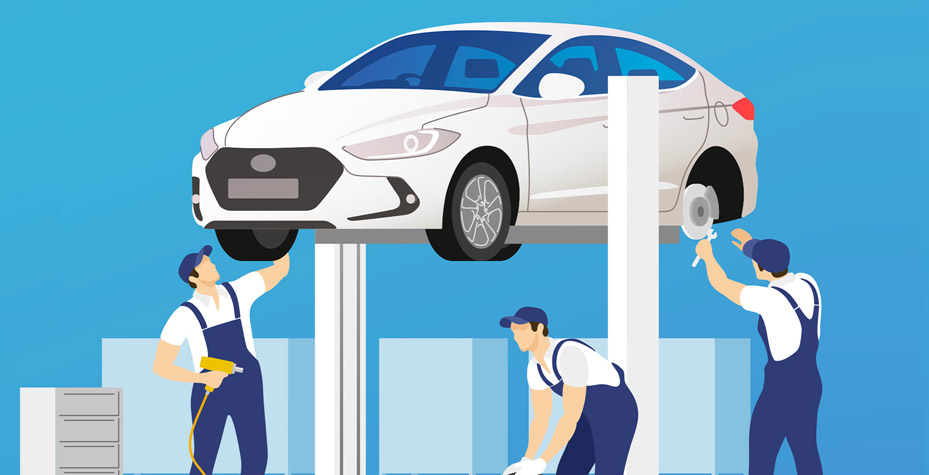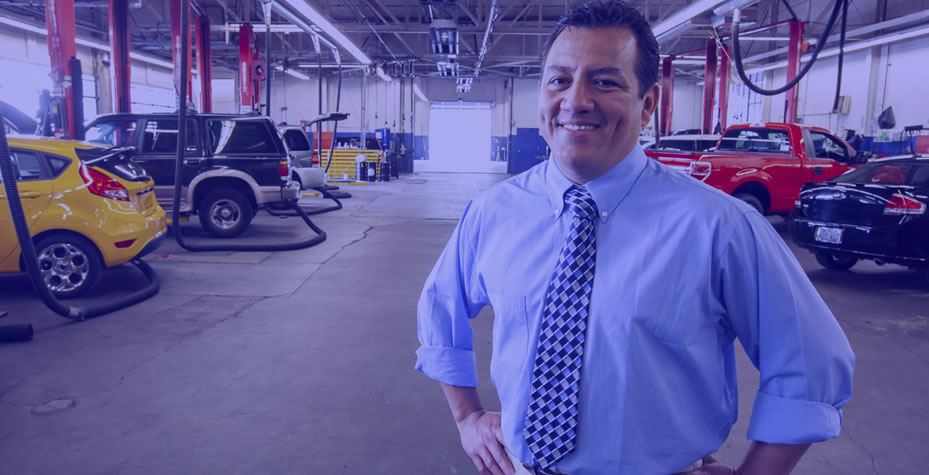
Extended Warranties vs. Vehicle Service Contracts
The terms “extended warranty” and “Vehicle Service Contract (VSC)” mean the same thing, right? Yes — and no.
Many times, someone might say they have extended warranty coverage when they actually have a Vehicle Service Contract. The two concepts are similar enough that it’s easy to confuse them, but it’s important to understand how they differ.
In this post, we’ll define both terms and highlight some of the major distinctions between extended warranties and Vehicle Service Contracts so you can decide which to purchase.
What Is an Extended Warranty?
True extended warranty coverage is usually offered by the vehicle’s manufacturer or the auto dealer where you purchased your car. As the name suggests, an extended warranty extends the term of the original manufacturer’s warranty rather than adding new, separate coverage.
Take Toyota's warranties as an example. The original manufacturer’s warranty provides the following coverage:
- Basic Coverage: 36 months/36,000 miles
- Powertrain Coverage: 60 months/60,000 miles
- Rust-Through Coverage: 60 months/unlimited miles
If a Toyota buyer wanted to continue their Toyota protection, they could extend those terms through several tiers of coverage, including:
- Powertrain Plan: Up to six years/100,000 miles
- Gold Plan: Between three years/50,000 miles and eight years/125,000 miles
- Platinum Plan: Between three years/50,000 miles and 10 years/125,000 miles
It’s important to note that these plans don’t begin whenever the buyer decides. Instead, all extended warranty plans begin from the original sale date of the vehicle. This means that even if a buyer gets the maximum 10-year/125,000-mile Platinum Plan, those 10 years begin counting down the moment they purchase the car.
What Does an Extended Warranty Cover?
Extended warranties provide the same coverage as the original warranty unless otherwise specified. This typically includes the following protections.
Bumper-to-Bumper Coverage
With bumper-to-bumper coverage, nearly all parts of a vehicle can be repaired or replaced without the vehicle’s owner incurring out-of-pocket costs. However, parts with finite life spans that are expected to wear out aren’t usually covered, including brake pads, tires, wipers, fluids, and light bulbs.
Powertrain Coverage
The powertrain includes the engine, transmission, and, in most cases, the driveshaft and differential. Buyers often purchase extended powertrain coverage because it’s cheaper than bumper-to-bumper coverage and protects the most essential (and usually the most expensive) parts of the car.
Rust-Through Coverage
To protect their vehicles from premature corrosion, many manufacturers provide a warranty in case a vehicle develops rust holes sooner than it should. Typically, a panel must be completely rusted through for the warranty to cover a repair.
Remember that warranties only protect you from the manufacturer’s defects, not damage that results from normal use. This means that if your air conditioning compressor quits before it’s supposed to, you can file a claim through your warranty to have a new one installed.
Additional Benefits
Warranties also come with additional benefits, such as roadside assistance in the event of breakdowns, trip interruption services, rental car reimbursement, towing, and even rental car options when repair times get sufficiently long.
What Is a Vehicle Service Contract?
A Vehicle Service Contract or vehicle service agreement is similar to a warranty, except it isn’t offered by the original vehicle manufacturer. Rather, most VSC’s are products customers purchase from third parties.
Buyers get protection from parts failures, but service agreement coverage tends to be much more flexible regarding mileage and vehicle age.
While factory-extended warranties rely on vehicle manufacturer and sale dates to determine when the coverage begins, a Vehicle Service Contract starts when you decide.
There’s generally a waiting period before the service agreement coverage begins, but this just serves to ensure that the vehicle is reasonably reliable. Once the waiting period is over, protection benefits kick in immediately.
What Do Vehicle Service Contracts Cover?
Unlike factory warranty protection, Vehicle Service Contracts offer more customization potential. Buyers can select comprehensive plans, powertrain plans, plans that protect the vehicle’s electrical system and electronics, and even plans tailored specifically to the needs of electric vehicles (EVs).
The contract holder must still submit a claim to get repairs for failed parts, just like they would with a factory warranty. Additionally, many service agreement providers offer the same perks as factory warranties, including roadside assistance, rental car options, and other benefits.
Vehicle Service Contracts are also generally more flexible in terms of where the buyer can have service performed.
Factory warranties usually require vehicle owners to have repairs done at a factory-approved dealer. Vehicle Service Contracts, however, almost always stipulate that the user can take their car to any ASE-certified shop, dealer or not. As a bonus, the deductibles for third-party Vehicle Service Contracts can be extremely low.
Warranties and Vehicle Service Contracts vs. Car Insurance
To strengthen your understanding of these products, it can also be helpful to compare extended warranty vs Vehicle Service Contract vs car insurance.
Warranties and Vehicle Service Contracts are only good when parts break or fail. If your oil pump dies or the ECU stops working due to a manufacturing flaw, you can submit a claim to your warranty or service provider for the necessary repairs. However, if you get into an accident, the repairs will be covered by insurance.
Insurance protects your car from accidents and hazards, not production defects. In cases where it’s unclear whether a particular repair falls under your warranty, Vehicle Service Contract, or your insurance, talk with your plan providers about the work that needs to be done. They’ll let you know which plan will cover it.
Which Is Right for You?
Deciding on an extended warranty vs. Vehicle Service Contract will come down to many factors specific to your situation. If you plan on taking your car to the dealership for repairs, only want OEM parts, and don’t intend to keep the car past 100,000 miles, you might go with an extended manufacturer’s warranty.
But if you would like more freedom to choose a repair shop, want lower deductibles, and need coverage with unlimited miles - for as long as you cover your car - a Vehicle Service Contract through CarShield might better suit your purposes. Keep these tips in mind, and you’ll be able to find the right plan for your situation!







